“They turned off the air conditioning to stop the virus from spreading”
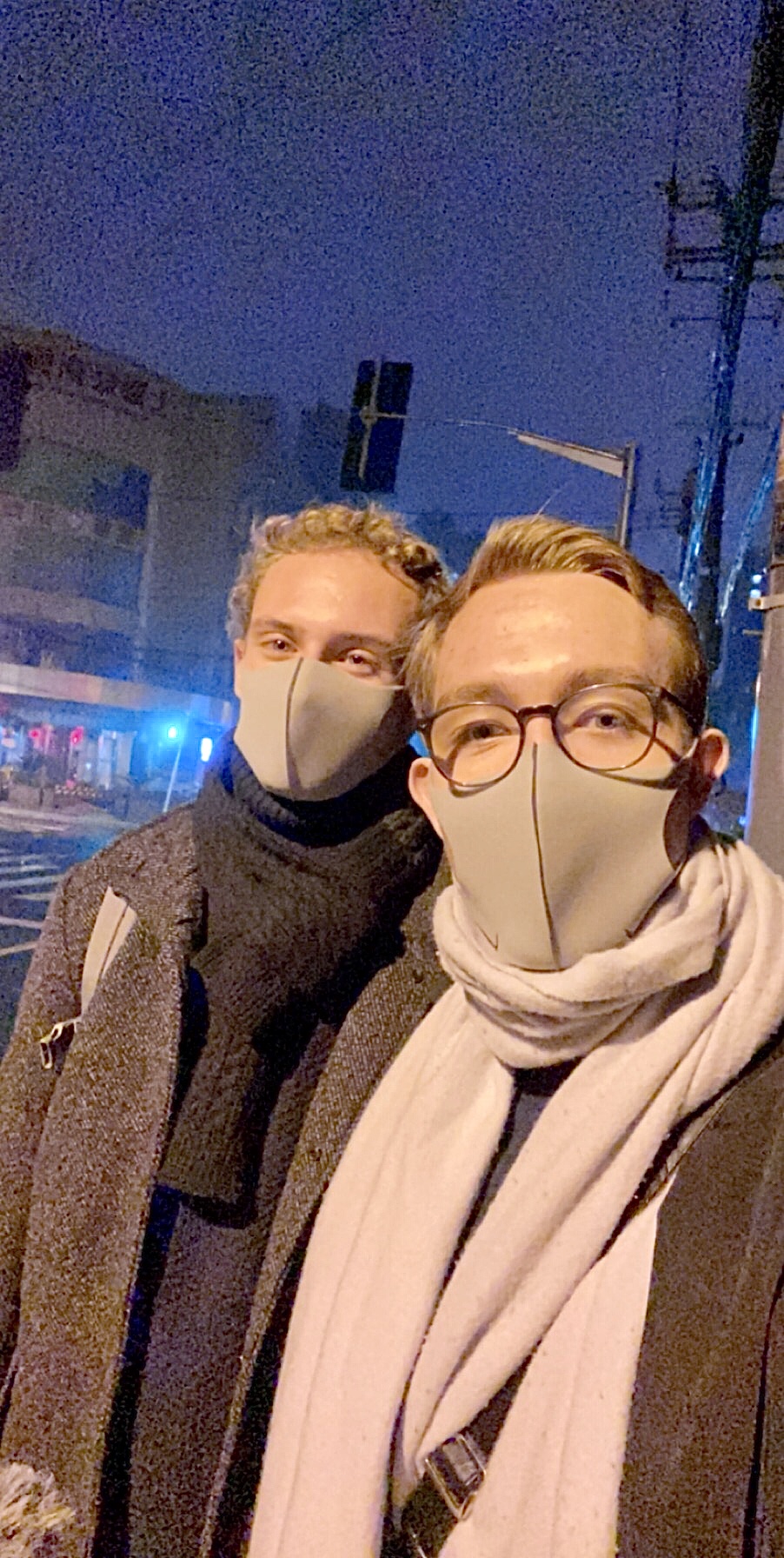
Mikkel Graulund Jørgensen and Tobias Løvkvist Bidstrup in the streets of Shanghai. (Photo: Private)
Tobias Løvkvist Bidstrup and Mikkel Graulund Jørgensen’s 90-day language trip to China was cut short as the corona virus spread. Shops and normal activities closed down and the two CBS students were forced pack their bags. Now, in Taiwan, they are still busy learning Chinese. Check out their cool videos documenting the whole experience.
Shanghai. A buzzing city of 23,390,000 inhabitants and streets crammed with about 2.5 million cars. Picture it almost empty. No pedestrians, almost no cars, and no open shops.
This might sound like a scene from a post-apocalyptic movie, but it was the sight that met Tobias Løvkvist Bidstrup and Mikkel Graulund Jørgensen, two CBS students on the BSc program International Business at CBS, as they gazed out of their hotel window in Shanghai only a couple of weeks ago.
“It was crazy to see a city of more than 20 million inhabitants close down like that due to the spread of the corona virus, even though almost no incidents of the virus had been detected in Shanghai. Our own hotel was almost deserted. I think five rooms out of 300 were booked,” explains Tobias Løvkvist Bidstrup over the phone from Taipei, Taiwan and continues:
“Moreover, we had our temperature checked four times a day and they turned off the air conditioning to stop air circulating from room to room with a risk of spreading the virus.”
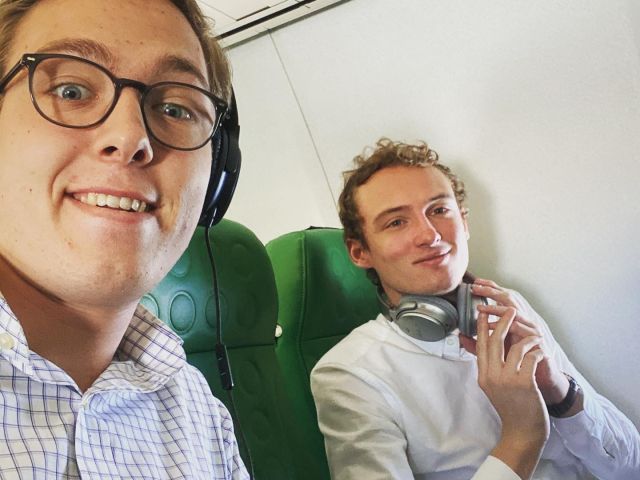
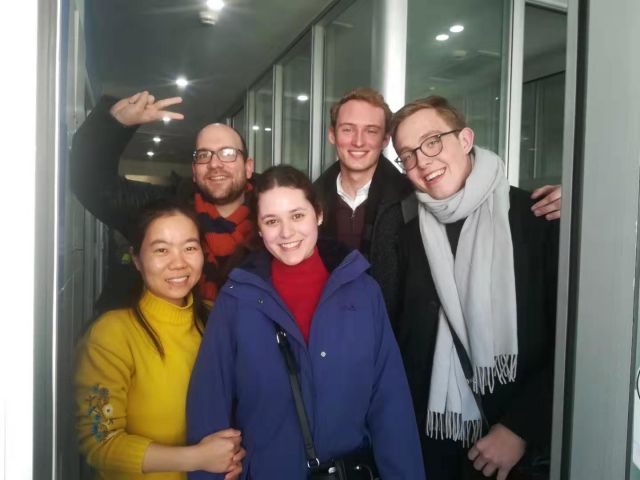
The two students had travelled to China on January 10 as part of a 90-day trip with a mission to learn as much of the Chinese language as possible. They intended to spend a month in Shanghai and a month in Beijing at language schools, and the last month they had planned to stay with a Chinese family who speak no English whatsoever.
But the two students spent only 10 “normal” days in China before the corona virus began wreaking havoc, and ultimately forced them to pack up and go to Taipei, the capital of Taiwan to continue their language studies.
“We had heard some things about the corona virus at around the New Year, but nothing serious, and nothing that worried us. But then in the course of three days, everything closed down except the pharmacies, where people queued up to get masks, which sold out so quickly,” explains Mikkel Graulund Jørgensen.
As a part of Mikkel Graulund Jørgensen and Tobias Løvkvist Bidstrup's journey they are keeping a vlog about learning Chinese and their experiences. In this vlog, they talk about the empty streets of Shanghai. (VIDEO: Challenge Yourself)
From their hotel room in Shanghai, the two students followed updates from various ministries of foreign affairs. First, the U.S. government ordered its citizens to leave China, and shortly after England and Germany followed suit.
“We really didn’t want to leave, and we believed that the whole situation would calm down. But then, four days before we were supposed to leave for our stay in Beijing, we received a message from the Ministry of Foreign Affairs in Denmark urging us to leave the country,” explains Mikkel Graulund Jørgensen
No access
Quickly, the two students contacted the language school where they were enrolled and asked for alternatives, so that they did not have to abandon their quest to learn the Chinese language. Luckily, study placements were available in Taipei in Taiwan, and the two students started looking for tickets.
“After we got the email from the Danish Ministry, we were able to find tickets out of China within two days. But on the day that we had planned to leave, Taiwan introduced a two-week quarantine for people travelling from China,” explains Tobias Løvkvist Bidstrup.
So, if they wanted to visit Taiwan, they had to have stayed outside China for two weeks first. Tobias Løvkvist Bidstrup’s girlfriend lives in Canada, so he visited her, while Mikkel Graulund Jørgensen went to Austria on a skiing trip with his family for a week. The second week they spent together in Thailand before going to Taiwan.
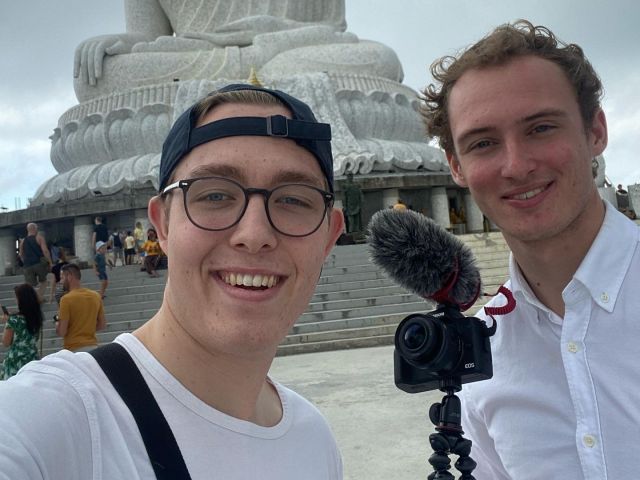
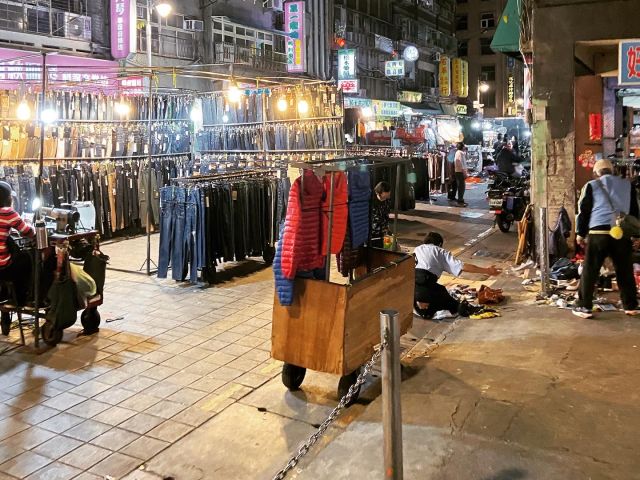
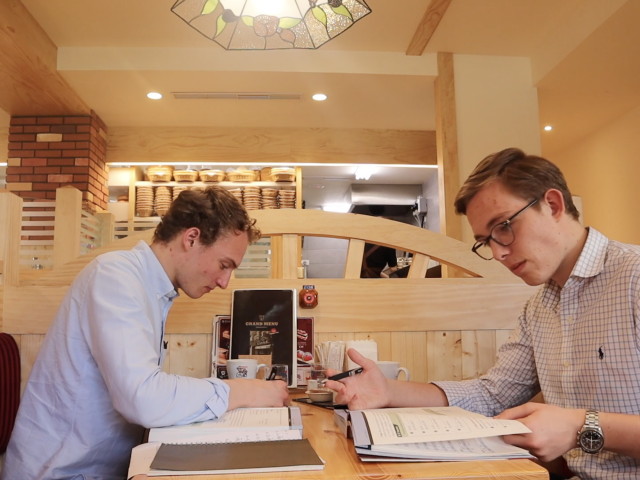
“When I boarded the plane in Shanghai, I began worrying about my health seriously for the first time. Being in the hotel felt safe, also because we hardly went outside for 1.5 weeks, but you could just feel that people didn’t want to board that plane. So many people were crammed together in a small space with the air conditioning circulating the same air – that could pose a risk of being infected with the virus,” says Mikkel Graulund Jørgensen and continues:
“After a couple of weeks with no symptoms, we could both breathe a sigh of relief.”
Learning Chinese the Chinese way
Mikkel Graulund Jørgensen and Tobias Løvkvist Bidstrup’s fascination for China, the Chinese culture and language was sparked during an internship in 2019, and upon returning to Denmark, they began searching for possibilities to return and learn the language.
But learning a language, and especially one that belongs to a totally different language family, is not something you can do on a course for a couple of weeks. Luckily, the BSc in International Business studies are flexibly structured to allow students to move courses around and take them during the summer instead.
For IB students, January consists mostly of holidays, and in February and March, they take two courses and exams. So, by moving the two courses in February and March to the summer, the two students could go to China from January up to the beginning of April without missing any courses or exams.
“We knew before going that it would be a little pricy for us to pay for the whole stay ourselves, so we reached out to a language school and pitched an idea of making a daily vlog about learning Chinese and about living in China, if they paid for our stay in return. And they said yes,” explains Tobias Løvkvist Bidstrup.
Right now, the two students have produced 46 vlog episodes on their Youtube channel ‘Challenge Yourself’. They still have a good many episodes to go, as the rest of their stay will be in Taiwan, where they have also arranged to stay with a Chinese family to further improve their Chinese skills.
“Even though we have met some obstacles during our trip, we are on track with how much we want to learn so far. Our end goal is to have a stable level of conversation, and with seven weeks left I don’t see why that’s not possible,” says Mikkel Graulund Jørgensen.
Six months after returning to Denmark in seven weeks’ time, the two students will be travelling back to China again for an exchange trip. By the end of 2020, they hope to have achieved the B2 level, which means they “can interact with a degree of fluency and spontaneity that makes regular interaction with native speakers quite possible without strain for either party.”
“Our aim is to continue using the Chinese language, and I’m sure we can both see how it can be useful career-wise. At least, I can see myself as the “China guy” in a company that works with China,” says Tobias Løvkvist Bidstrup.





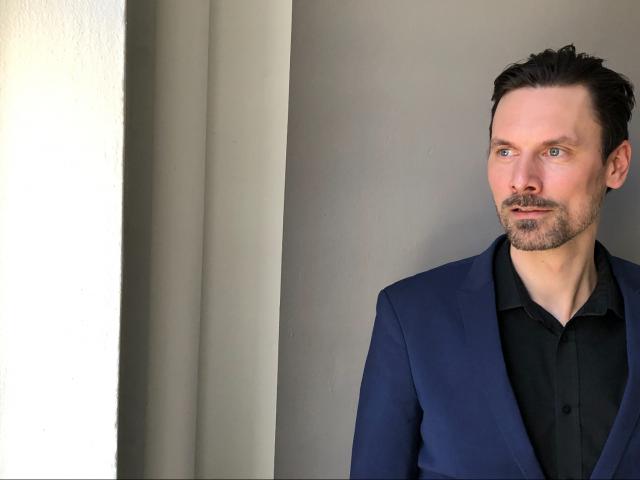
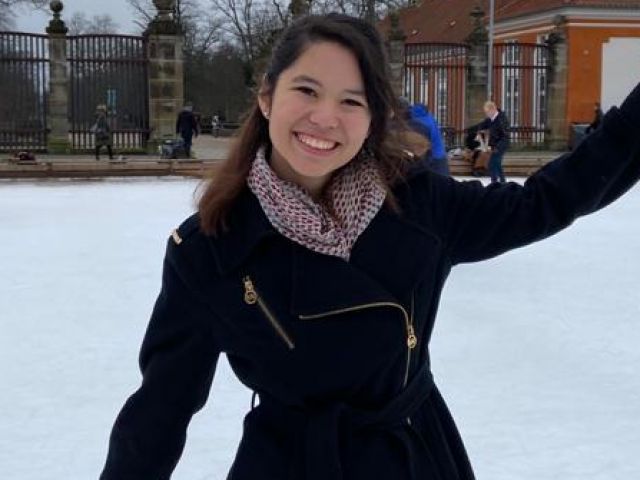





























































































































Comments